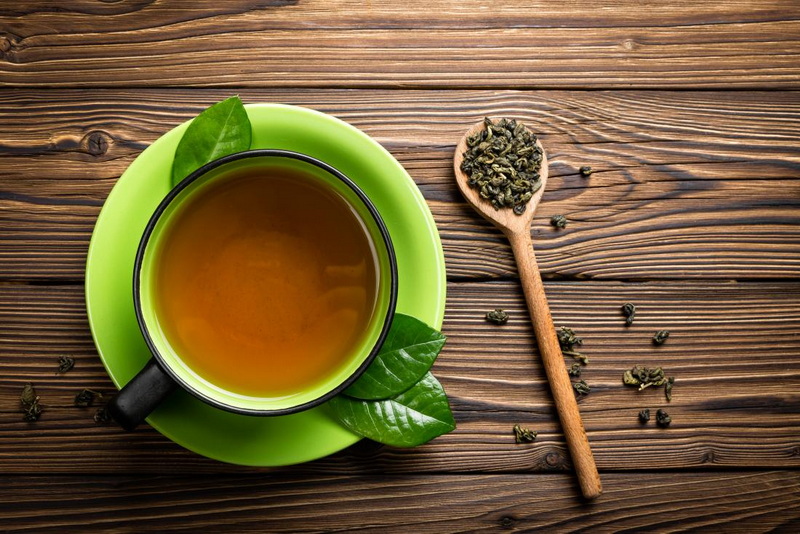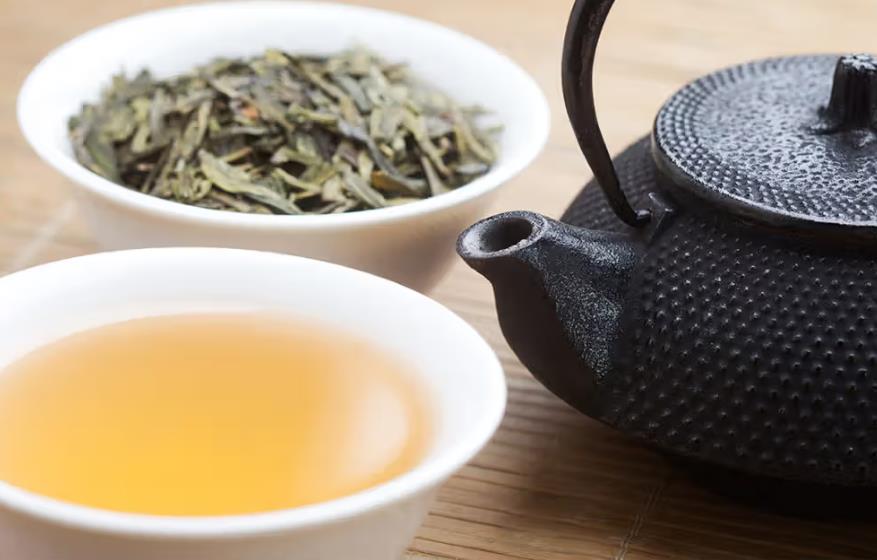Content Menu
● What is Garcinia Cambogia?
● What is Green Tea Extract?
● Potential Benefits of Combining Garcinia Cambogia and Green Tea Extract
● Risks and Side Effects
● How to Take Garcinia Cambogia with Green Tea Extract
● Research and Evidence
>> Garcinia Cambogia
>> Green Tea Extract
>> Combined Use
● Potential Interactions
● Alternative Approaches to Weight Loss
● Conclusion
● FAQ
>> 1. Is it safe to take garcinia cambogia and green tea extract together?
>> 2. How much garcinia cambogia and green tea extract should I take?
>> 3. Can combining garcinia cambogia and green tea extract help me lose weight faster?
>> 4. What are the potential side effects of taking garcinia cambogia with green tea extract?
>> 5. Are there any alternatives to taking garcinia cambogia and green tea extract for weight loss?
● Citations:
Garcinia cambogia and green tea extract are two popular dietary supplements often used for weight loss and other potential health benefits. However, many people wonder if it's safe and effective to combine these two supplements. In this comprehensive article, we'll explore the potential benefits, risks, and considerations of taking garcinia cambogia with green tea extract.

What is Garcinia Cambogia?
Garcinia cambogia is a tropical fruit native to Southeast Asia, also known as Malabar tamarind. The fruit's rind contains hydroxycitric acid (HCA), which is believed to have weight loss properties[1]. Garcinia cambogia supplements are marketed as natural weight loss aids, claiming to suppress appetite and block fat production.
What is Green Tea Extract?
Green tea extract is derived from the leaves of the Camellia sinensis plant. It contains high concentrations of polyphenols, particularly catechins, which are known for their antioxidant properties[9]. The most abundant and well-studied catechin in green tea is epigallocatechin gallate (EGCG), which is believed to contribute to various health benefits, including weight loss and improved metabolism.
Potential Benefits of Combining Garcinia Cambogia and Green Tea Extract
While research on the combination of garcinia cambogia and green tea extract is limited, some potential benefits may arise from their individual properties:
1. Enhanced Weight Loss: Both supplements are marketed for weight loss, and combining them might provide a synergistic effect[1][9].
2. Increased Metabolism: Green tea extract is known to boost metabolism, while garcinia cambogia may help block fat production[9].
3. Appetite Suppression: Garcinia cambogia is believed to suppress appetite, which could complement the metabolic effects of green tea extract[1].
4. Antioxidant Properties: Green tea extract is rich in antioxidants, which may provide additional health benefits when combined with garcinia cambogia[9].
Risks and Side Effects
Before combining garcinia cambogia and green tea extract, it's essential to consider potential risks and side effects:
1. Liver Damage: Both supplements have been associated with rare cases of liver damage[1][9]. Combining them may increase this risk.
2. Caffeine Sensitivity: Green tea extract contains caffeine, which may cause side effects in sensitive individuals[9].
3. Interactions with Medications: Both supplements can interact with certain medications, including blood thinners and diabetes medications[11].
4. Digestive Issues: Some people may experience nausea, stomach discomfort, or diarrhea when taking these supplements[1][11].
How to Take Garcinia Cambogia with Green Tea Extract
If you decide to try combining these supplements, consider the following guidelines:
1. Consult Your Healthcare Provider: Always consult with a healthcare professional before starting any new supplement regimen, especially if you have pre-existing health conditions or are taking medications.
2. Start with Low Doses: Begin with the lowest recommended dose of each supplement and gradually increase if needed.
3. Monitor for Side Effects: Pay attention to any adverse reactions and discontinue use if you experience any concerning symptoms.
4. Choose Quality Products: Select supplements from reputable manufacturers that have been third-party tested for purity and potency[8].
5. Follow Recommended Dosages: Adhere to the dosage instructions provided on the product labels or as advised by your healthcare provider.
Research and Evidence
While individual studies have been conducted on garcinia cambogia and green tea extract separately, research on their combined use is limited. Here's a summary of the available evidence:
Garcinia Cambogia
- A review of studies found that garcinia cambogia may lead to short-term weight loss, but the effects are small and of uncertain clinical relevance[1].
- Some studies suggest that garcinia cambogia may help reduce appetite and inhibit fat production, but results are mixed[8].
Green Tea Extract
- Green tea extract has been shown to increase metabolism and fat oxidation in some studies[9].
- The catechins in green tea extract may help reduce body fat and improve weight loss maintenance[9].
Combined Use
- There is a lack of specific research on the combined use of garcinia cambogia and green tea extract for weight loss or other health benefits.
- More studies are needed to determine the safety and efficacy of using these supplements together.

Potential Interactions
When considering combining garcinia cambogia with green tea extract, it's important to be aware of potential interactions with medications and other supplements:
1. Diabetes Medications: Both supplements may affect blood sugar levels, potentially interacting with diabetes medications[11].
2. Blood Thinners: Green tea extract may interfere with blood-thinning medications[11].
3. Stimulants: The caffeine in green tea extract may interact with other stimulants, increasing the risk of side effects[9].
4. Iron Absorption: Green tea extract may reduce iron absorption, which could be a concern for people with iron deficiency[9].
5. Serotonergic Medications: Garcinia cambogia may interact with medications that affect serotonin levels, potentially increasing the risk of serotonin syndrome[11].
Alternative Approaches to Weight Loss
While garcinia cambogia and green tea extract may offer potential benefits for weight loss, it's important to consider alternative, evidence-based approaches:
1. Balanced Diet: Focus on a nutritious, calorie-controlled diet rich in fruits, vegetables, lean proteins, and whole grains.
2. Regular Exercise: Engage in a combination of cardiovascular exercise and strength training for optimal weight loss and overall health.
3. Adequate Sleep: Ensure you get 7-9 hours of quality sleep per night, as poor sleep can negatively impact weight loss efforts.
4. Stress Management: Practice stress-reduction techniques such as meditation, yoga, or deep breathing exercises.
5. Behavioral Changes: Work on developing healthy habits and addressing emotional eating patterns.
Conclusion
While garcinia cambogia and green tea extract are popular supplements for weight loss, the evidence supporting their combined use is limited. Both supplements may offer potential benefits, but they also come with risks and potential side effects. It's crucial to approach their use with caution and under the guidance of a healthcare professional.
Before considering these supplements, focus on establishing a healthy lifestyle through proper nutrition, regular exercise, and stress management. If you do decide to try garcinia cambogia with green tea extract, start with low doses, monitor for side effects, and choose high-quality products from reputable manufacturers.
Remember that there is no magic solution for weight loss, and sustainable results come from long-term lifestyle changes rather than quick fixes or supplement combinations. Always prioritize your health and safety when exploring weight loss options.

FAQ
1. Is it safe to take garcinia cambogia and green tea extract together?
While some people may safely combine these supplements, there are potential risks, including an increased chance of liver damage. It's essential to consult with a healthcare provider before combining any supplements, especially if you have pre-existing health conditions or are taking medications.
2. How much garcinia cambogia and green tea extract should I take?
Dosages can vary depending on the specific product and individual factors. For garcinia cambogia, typical doses range from 900 to 1500 mg of HCA per day[10]. Green tea extract dosages often range from 250-500 mg per day[9]. Always follow the recommended dosages on the product labels or consult with a healthcare professional for personalized advice.
3. Can combining garcinia cambogia and green tea extract help me lose weight faster?
While both supplements are marketed for weight loss, there is limited evidence supporting their combined use for enhanced weight loss. Individual results may vary, and it's important to remember that sustainable weight loss primarily comes from a balanced diet and regular exercise.
4. What are the potential side effects of taking garcinia cambogia with green tea extract?
Potential side effects may include nausea, stomach discomfort, headaches, dizziness, and diarrhea[1][11]. In rare cases, more severe side effects such as liver damage have been reported. If you experience any unusual symptoms, discontinue use and consult a healthcare provider immediately.
5. Are there any alternatives to taking garcinia cambogia and green tea extract for weight loss?
Yes, there are many evidence-based alternatives for weight loss, including:
- Following a balanced, calorie-controlled diet
- Engaging in regular physical activity
- Getting adequate sleep
- Managing stress levels
- Working with a registered dietitian or nutritionist for personalized guidance
These approaches are generally safer and more effective for long-term weight management than relying on supplements alone.
Citations:
[1] https://pubmed.ncbi.nlm.nih.gov/34400337/
[2] https://pmc.ncbi.nlm.nih.gov/articles/PMC9004424/
[3] https://www.mdpi.com/2076-3921/12/9/1771
[4] https://www.alamy.com/stock-photo/garcinia.html
[5] https://www.alamy.com/stock-photo/green-tea-extract.html
[6] https://www.youtube.com/watch?v=VxdGaxpUW0Q
[7] https://www.webmd.com/vitamins-and-supplements/garcinia-cambogia-weight-loss
[8] https://www.health.com/garcinia-cambogia-8695683
[9] https://www.healthline.com/nutrition/10-benefits-of-green-tea-extract
[10] https://www.webmd.com/diet/health-benefits-garcinia-cambogia
[11] https://www.webmd.com/vitamins/ai/ingredientmono-818/garcinia
[12] https://www.healthline.com/health/food-nutrition/things-you-didnt-know-about-garcinia-cambogia
[13] https://www.drugs.com/garcinia-cambogia.html






























